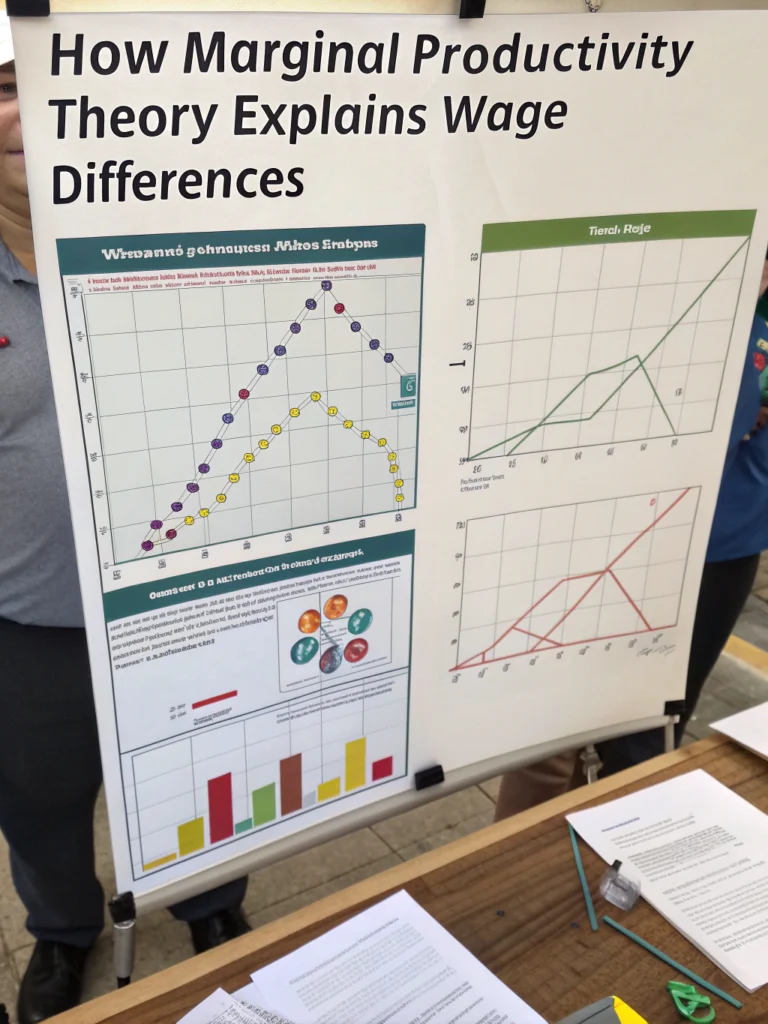How Marginal Productivity Theory Explains Wage Differences
In today's ever-evolving economic landscape, understanding marginal productivity theory is essential for grasping why wage differences exist. This theory offers a comprehensive framework to explain wage determination based on the productivity of labor. Let's dive deeper into how this concept works and its implications for the workforce.
What is Marginal Productivity Theory?
At its core, marginal productivity theory posits that wages are determined by the additional value created by an employee's last unit of labor. In simpler terms, the more productive you are, the higher your potential wage.
This is especially relevant in labor economics 2025, where the demand for skilled workers continues to rise. Employers are willing to pay more for individuals who can significantly contribute to their bottom line. Thus, understanding productivity and wages is critical for job seekers and employers alike.
Wage Differences Explained
So, what are some of the key factors affecting wages? Here are a few:
-
Education and Skill Level:
Higher levels of education and specialized skills generally result in higher wages. Workers equipped with unique skills that drive productivity—think technology and data analysis—will typically earn more. -
Industry Variation:
Different industries have varying demands for labor. Sectors like technology and healthcare often offer higher wages due to the specialized expertise required, whereas lower-skilled sectors may pay less. -
Market Conditions:
Supply and demand play a significant role in wage determination. If demand for a particular skill outpaces supply, wages will naturally rise.
The Economic Theory of Wages
According to the economic theory of wages, the equilibrium wage is established where the supply of labor meets the demand for labor. If you understand how the forces of supply and demand work, you'll grasp why some jobs pay significantly more than others.
Employers are incentivized to offer competitive wages in high-demand sectors, thus creating a wage difference across various fields. This concept is crucial for anyone trying to navigate their career or manage a workforce effectively.
Productivity and Wages
The direct link between productivity and wages can't be overstated. Employees who can produce more or create greater value for their employers will be compensated accordingly. This understanding can empower workers to upskill and adapt in a fast-changing job market.
For instance, as automation and AI technologies advance, gaining skills in these areas can significantly increase your productivity—and hence your wage potential. The focus should be on continual learning and adapting to industry trends.

FAQs
Q: How does marginal productivity theory relate to wage differences?
A: The theory suggests that wages are directly linked to the productivity of labor. Higher productivity typically leads to higher wages.
Q: What are some factors affecting wages?
A: Factors include education, industry, market conditions, and individual skill levels.
Q: How does this theory apply in labor economics for 2025?
A: As industries evolve, understanding this theory can aid in navigating wage negotiations and career advancements.
Conclusion
Understanding marginal productivity theory provides valuable insights into wage differences explained. By recognizing the elements influencing wage determination, both employers and employees can make informed decisions about compensation and career development.
For additional tools to enhance your productivity, check out the AI for Productivity eBook + Checklist: Supercharge Your Efficiency in 2312. This resource offers strategies that can help maximize your effectiveness in the workplace.
Furthermore, if you're looking to master focus and time management, the ADHD Productivity Power Pack: Ebooks, Guides, Checklists, Workbook & Tools to Master Focus, Time Management & Organization is an excellent investment for anyone needing extra support in their productivity journey.
Stay ahead in your career by understanding these economic theories and applying them to your professional landscape. Remember, knowledge is power, especially when it comes to wage growth and career advancement!

